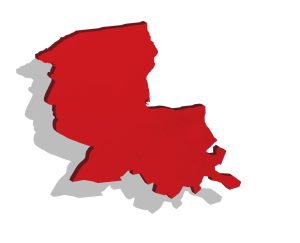DSC workers are not security guards
October 5, 2016
Desk Service Coordinators, commonly referred to as “DSCs,” are Tulane undergraduate students who are paid minimum wage to do a variety of duties at the dorm front desks. These tasks range from reminding students to tap in guests to “ensuring the overall safety and security” of the dorm, according to the Housing and Residential Life website.
This is an unreasonable range of responsibility for a student worker.
This year, Housing and Residential Life made several changes to the DSC position. These changes have been mostly surface-level, including banning DSCs from wearing open-toed shoes during shifts, requiring them to wear Tulane apparel while on duty and no longer allowing them to check out items such as pots, pans, movies and games to students. The only security change housing made affected Resident Advisors, who are no longer allowed to circumvent dorm security protocol and must tap in and check guests in like other residents.
Student workers, however, are not security guards. They are not armed, nor have they been put through active shooter training. During training they are taught prevention is key to campus safety, which is not helpful when faced with an immediate threat such as a dangerous person entering the building. The most they can do is contact a Resident Director, RA or Tulane University Police Department, but by then it may be too late to prevent harm if the only tool they have access to is a phone.
While there are sometimes security guards in and around dorm buildings, especially during the weekend, there are not specific guards assigned to each building, so this coverage is weak and inconsistent. While RDs oversee DSCs, student workers find themselves alone and less supported during graveyard shifts when the RD is asleep.
Housing noted that community safety is a shared responsibility but during the night hours and critical situations it falls solely upon the DSCs.
Last year, there was a string of break-ins in freshman residence halls, all committed by the same individual who was later apprehended by police. This incident revealed significant issues with dorm safety and security.
The arrested individual was living in a freshman residence hall for multiple weeks, pretending to be a Tulane student. Many students reported knowledge of this after the fact, but he somehow managed to enter the building without ever tapping in, proving that DSCs are often helpless in situations where unaffiliated people sneak by in a crowd of students or use another entrance to gain access to the building. Other dorms, such as Warren House or Weatherhead Hall, do not require students to tap in at all.
Additionally, use of security cameras in dorms has been inconsistent. Some of the dorms affected by the break-ins, such as Sharp Hall, had security cameras both in and outside the building that aided police in identifying the person responsible and figuring out which rooms he had entered or attempted to enter. In Josephine Louise Hall, there is only one security camera that covers an incomplete view of the main entrance. This inconsistency delayed police from getting a recognizable image of the culprit and determining which rooms he had entered.
If HRL wants to improve dorm security, it should start with hiring full time security guards specific to each building and standardizing the use of security cameras. At Marist College, freshman and sophomore dorms are staffed by security personnel from 3 p.m. to 6:45 a.m., seven days a week. Having trained guards protecting dorms is more logical than employing untrained student workers to do so.
Student workers should not be the first line of defense against a potentially dangerous situation.
If they are to have a role in campus safety and security, student workers should receive further training in how to handle such situations so that they feel more prepared, such as active shooter training. They should also have a direct line to TUPD that is treated as a priority.
For $7.25 per hour, DSCs should be a friendly face that students can utilize for guidance and questions about dorm life, a person who ensures that students tap in and that they are following the basic rules and regulations of the building. They should not be expected to guarantee overall security and safety within the dorms.
This opinion article does not reflect the opinion of any members of The Hullabaloo Board who currently work for Tulane Housing and Residence Life. No current employees participated in the creation of this article.









Leave a Comment